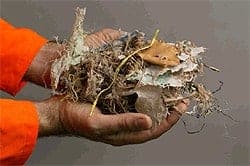A group of trade bodies representing European waste-to-energy firms has urged the European Commission to warn Member States against developing end of waste standards for refuse derived fuels.
The call was made jointly by the Confederation of European Waste-to-Energy Plants (CEWEP), Municipal Waste Europe (MWE), European Suppliers of Waste-to-Energy Technology (ESWET) and the European Cement Association (CEMBUREAU).

The groups have called for the Commission to ensure that refuse derived fuels are kept under the control of waste management regulations, as they claim that waste derived fuels that achieve product status can often be burned in sub-standard treatment facilities. They also argue that freeing the material from waste legislation would mean it would be more difficult for waste firms to trace its end destination.
So far, Italy and Austria have developed criteria which can determine the point at which refuse derived fuels can be determined as a product and are therefore no longer subject to waste treatment legislation and standards.
The four organisations claim that other EU Member States are considering developing similar criteria in order to ease the trade in refuse derived fuels.
Impacts
However, they claim that this could have negative environmental impacts, as once it is no longer subject to waste controls, RDF could be burned in facilities that do not have the same standard of emission controls as licenced waste treatment facilities. And, the groups also claim that waste material would be less traceable as the material would no longer be subject to waste shipment laws.
In the statement, CEWEP, MWE, ESWET and CEMBUREAU, said: Waste incineration and waste co-incineration must comply with emission control and abatement techniques set in the EU Industrial Emissions Directive for waste incineration and co-incineration, as well as the relevant Best Available Techniques.
No-longer waste SRF/RDF, however, can be burnt in facilities that do not need to comply with the specific, strict requirements applied to installations using waste. The application of waste legislation will prevent damage to health and the environment from the burning of heterogenous material in poorly designed boilers and unregulated facilities lacking proper flue gas treatment or in plants not complying with Best Available Techniques for waste incineration and waste co-incineration.
It is essential therefore, that SRF/RDF continues to be burnt in facilities that comply with the requirements for waste incineration and waste co-incineration, providing a high level of environmental protection as required by the Waste Framework Directive for end of waste criteria, and ensuring that this will not lead to overall adverse environmental or human health impacts.
Fuels produced using dry waste include refuse derived fuel (RDF), which is produced by shredding and dehydrating waste, and solid recovered fuel (SRF), a higher quality variant of waste derived fuel.







Subscribe for free